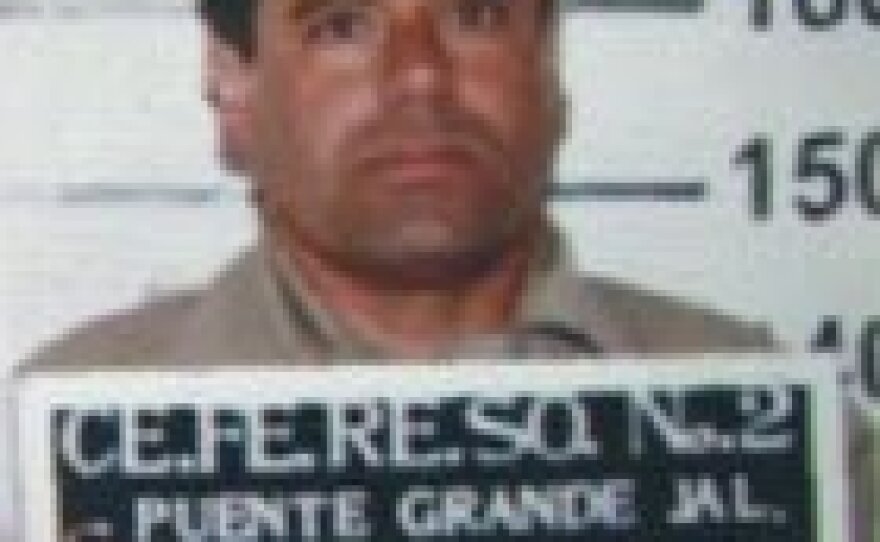CHIHUAHUA, Mexico — On Feb. 22, the world’s most wanted drug trafficker — Sinaloa cartel leader Joaquín Archivaldo Guzmán Loera, known as El Chapo, or 'Shorty'— was captured in a joint U.S.-Mexico operation.
At the time, federal agents in both countries followed intelligence provided by one of Guzmán's subordinates who had been captured the previous week.
As applause over the joint cooperation between two historically wary neighbors subsided, the United States and Mexico began discussing the possibility of extraditing Guzmán to face charges in the U.S.
Now, Mexico’s Attorney General Jesús Murillo Karam says he won’t even consider allowing Guzmán's extradition to the U.S.
That's not a total surprise. But some believe the attorney general's explanation is.
Until the preceding Mexican administration of President Felipe Calderón, Mexico believed its citizens should not be tried in the United States, reasoning that extradition implied a fundamental weakness in the Mexican justice system.
Now that the long dominant Mexican political party, the PRI is back in power after 12 years, it appears the country's sensitivities over sovereignty and the way its justice system is perceived abroad might make extradition difficult.
But the Mexican Attorney General's remarks to a reporter in Mexico City standout even against the yin and yang of U.S.-Mexico relations.
Murrillo opposes U.S. prosecutors “reaching deals with criminals.”
He’s referring to a plea deal offered to the son of Guzmán’s partner in return for information on the Sinaloa Cartel’s inner circle and its alleged relationship with senior politicians over the course of three decades. That plea deal includes testifying as a chief witness against Guzmán.
Grand juries in Chicago, San Diego, New York and Texas have already issued indictments against Guzmán for trafficking and criminal conspiracy including murder. In Mexico, there’s a simple explanation for ‘no extradition.’
I spoke with a judge's judge’s clerk in Chihuahua. Fearing possible retribution, he asked that we not use him name. He says Guzmán’s testimony would expose long alleged government involvement in organized crime.
"If he told the truth, you'd find out he's not even the biggest player," the man said in Spanish. "You'd soon see connections with (Mexican) congressional representatives and senators."
El Chapo Guzmán still enjoys near mythical status in Mexico as the son of a dirt poor farmer who made it onto the Forbes' billionaires list. Several sources interviewed for this story say they know exactly why Mexican Attorney General Murillo refuses to extradite Guzman.
"It's no coincidence that drug trafficking never ends here in Mexico,’ he says, "where criminals are close to politicians."
One woman in Ojinaga, a dusty, sepia-toned border town across from Presidio, Texas is concerned Guzmán won’t face a court in either country. She recalls the last time he was captured and escaped from prison, with alleged help from police and politicians, in 2001.
Like numerous Mexicans, she wonders if it will happen again, rendering the extradition discussion pointless.
“This guy has so much money that I think he’s going to go away again," she said. "I don’t trust the law here in Mexico.”
That's not a random reaction in Mexico. Javier Nieto from Sonora says the Mexican attorney general staged a brilliant piece of media management that has distracted Mexican citizens temporarily from focusing on the country's other issues.
Nieto asks rhetorically, what would El Chapo's testimony in a U.S. court really reveal?
“I mean the worst thing he could say is what, that his cartel funded (political) campaigns?" he says.
"But I mean just like he could say that, the same thing with the Cartel del Golfo, Los Zetas. They all fund these things. And from the very lowest levels to the very highest ranks. I mean, what are they gonna do?”
Officially, the U.S. Department of Justice says extradition is the “the subject of ongoing discussions” between both countries. As is the case of Rafael Caro Quintero, one of Guzmán's mentors who orchestrated the savage days-long torture of a DEA agent Enrique Camarena in 1985.
Caro Quintero was released from a Mexican prison last summer on a technicality after serving 28 years of a 40-year sentence for murder. The U.S. was incensed and asked for his extradition. Caro Quintero's whereabouts are officially unknown.
Yet he managed to send a letter to Mexico's Attorney General Murillo asking that Mexico not send him to the United States. Murillo has acknowledged receipt of that letter.






